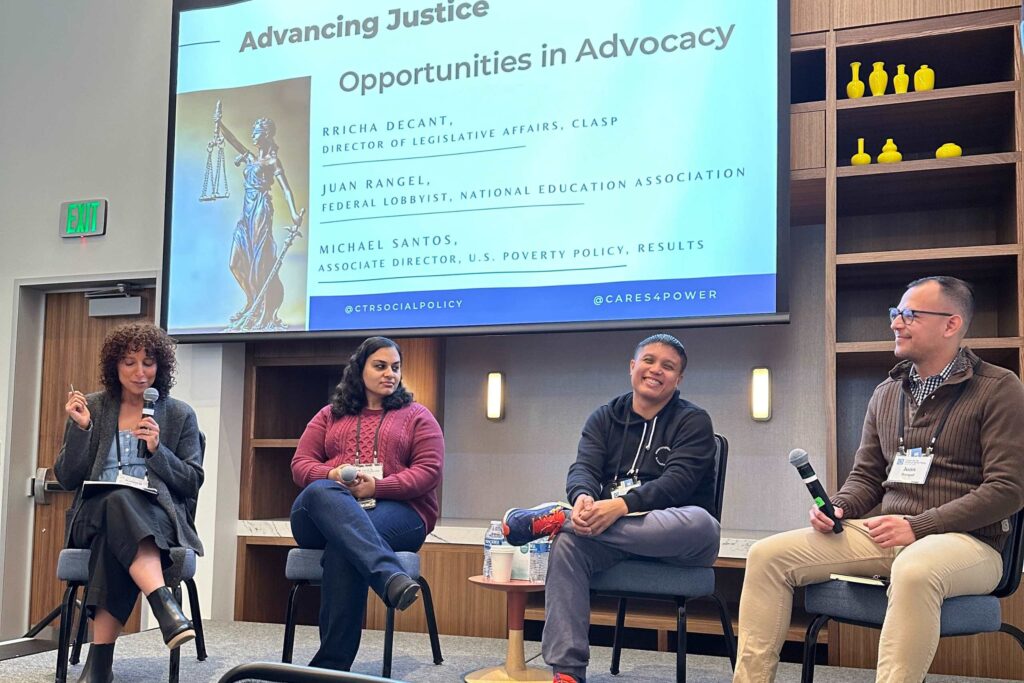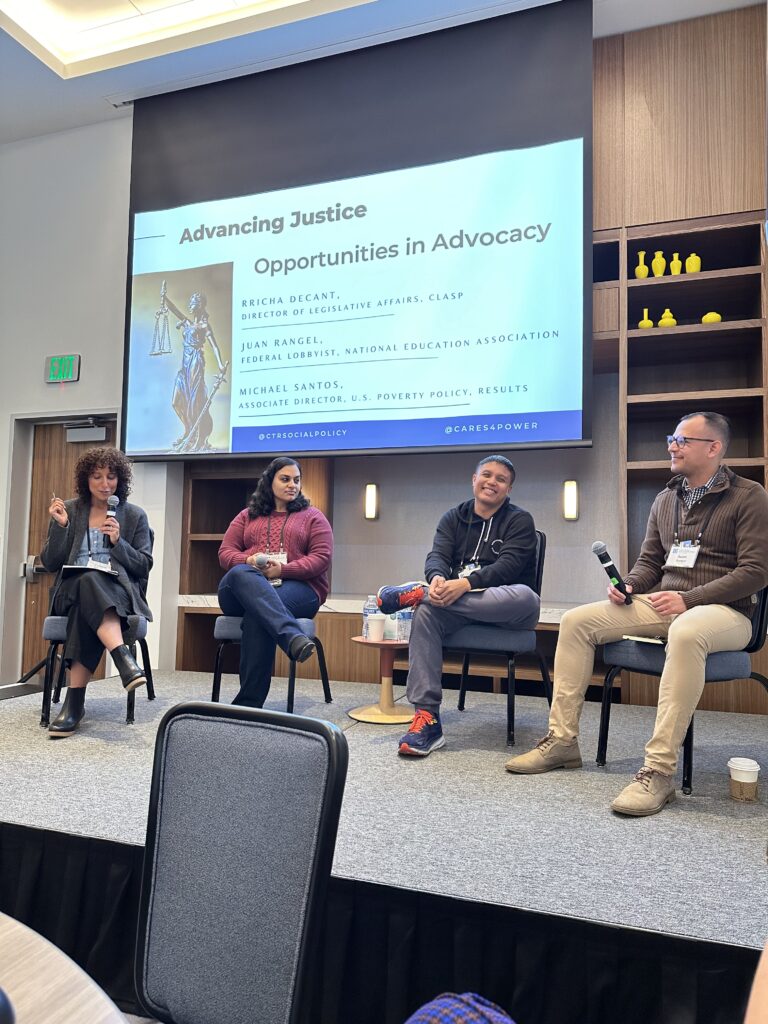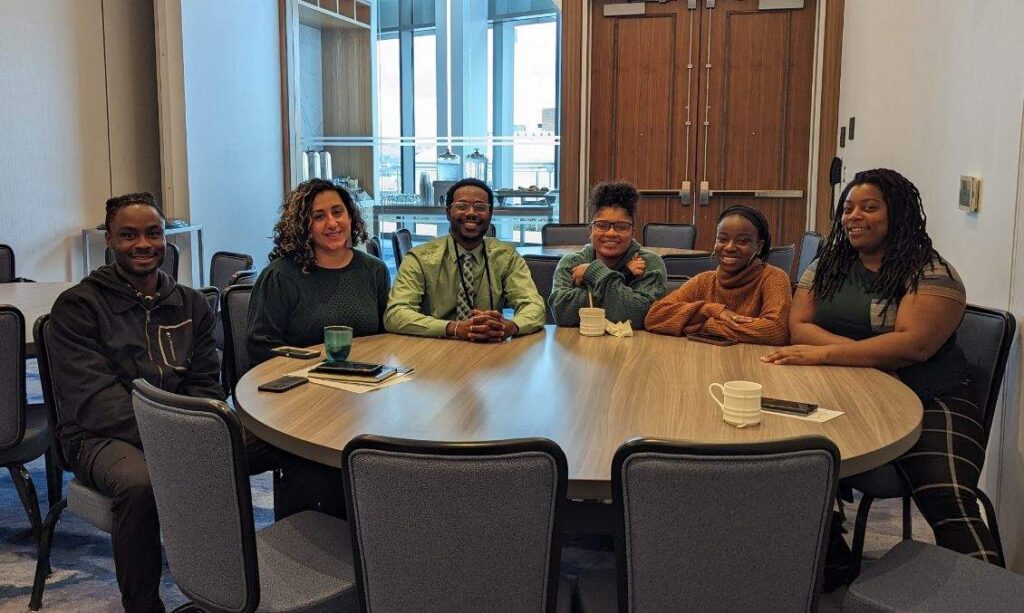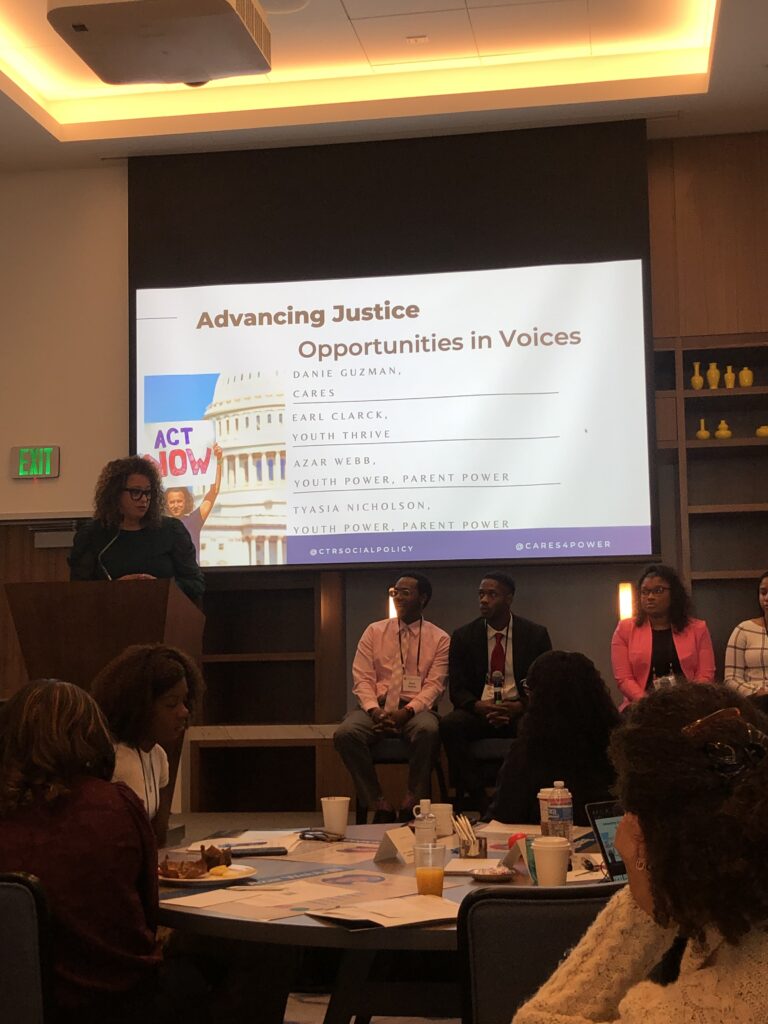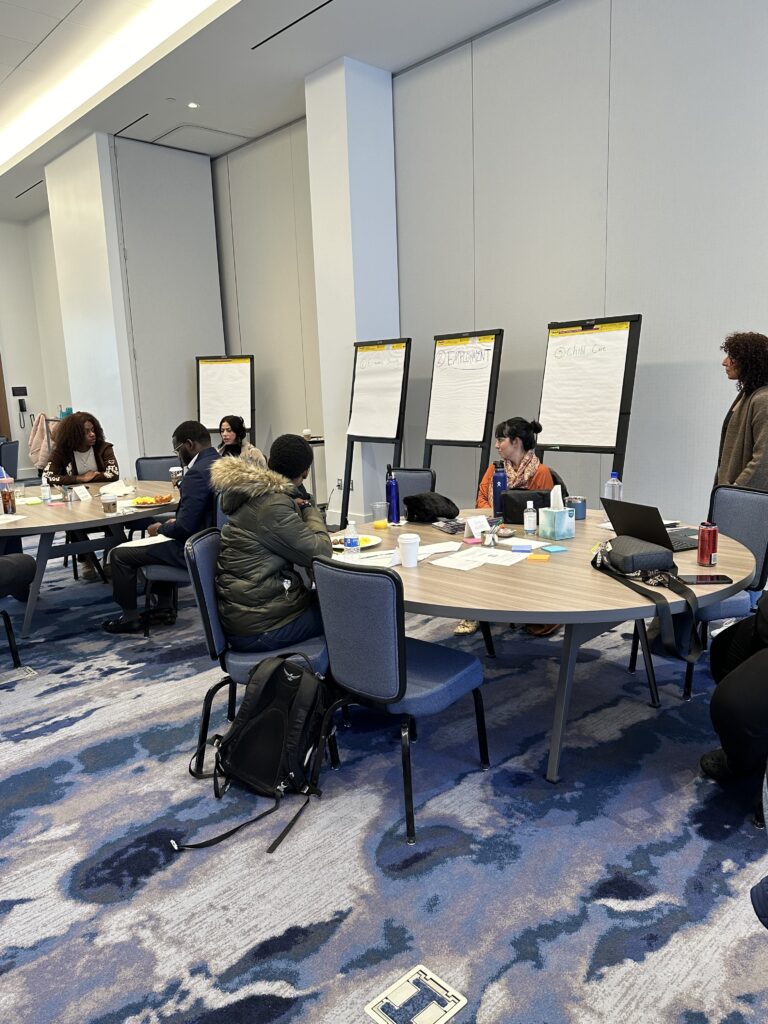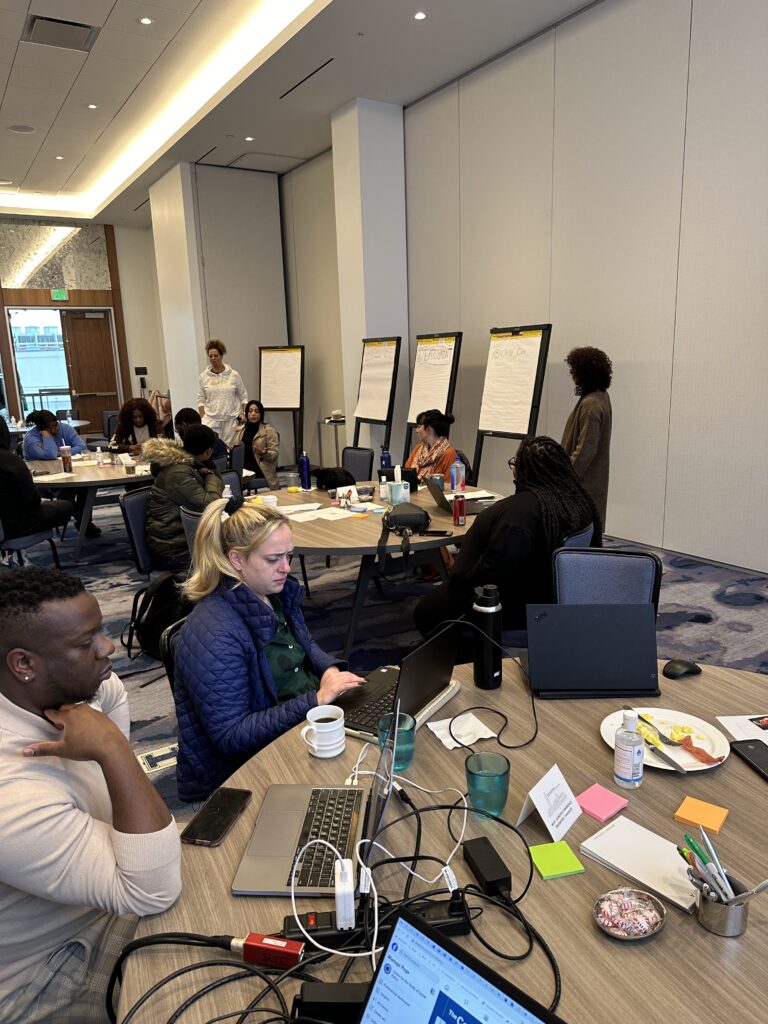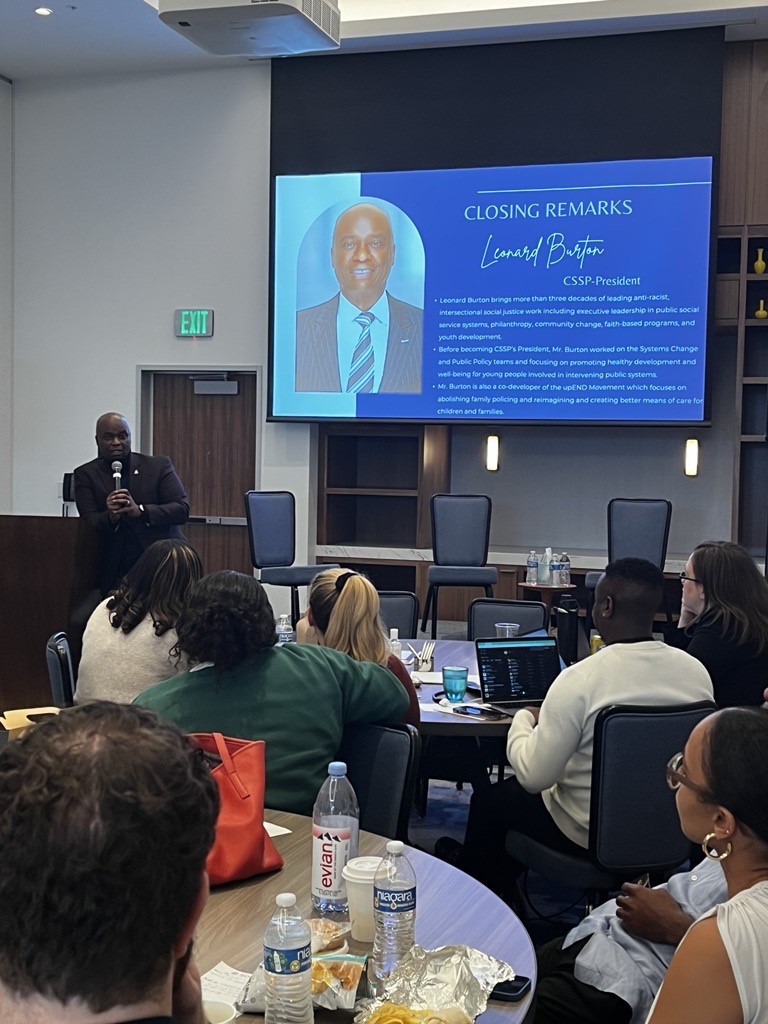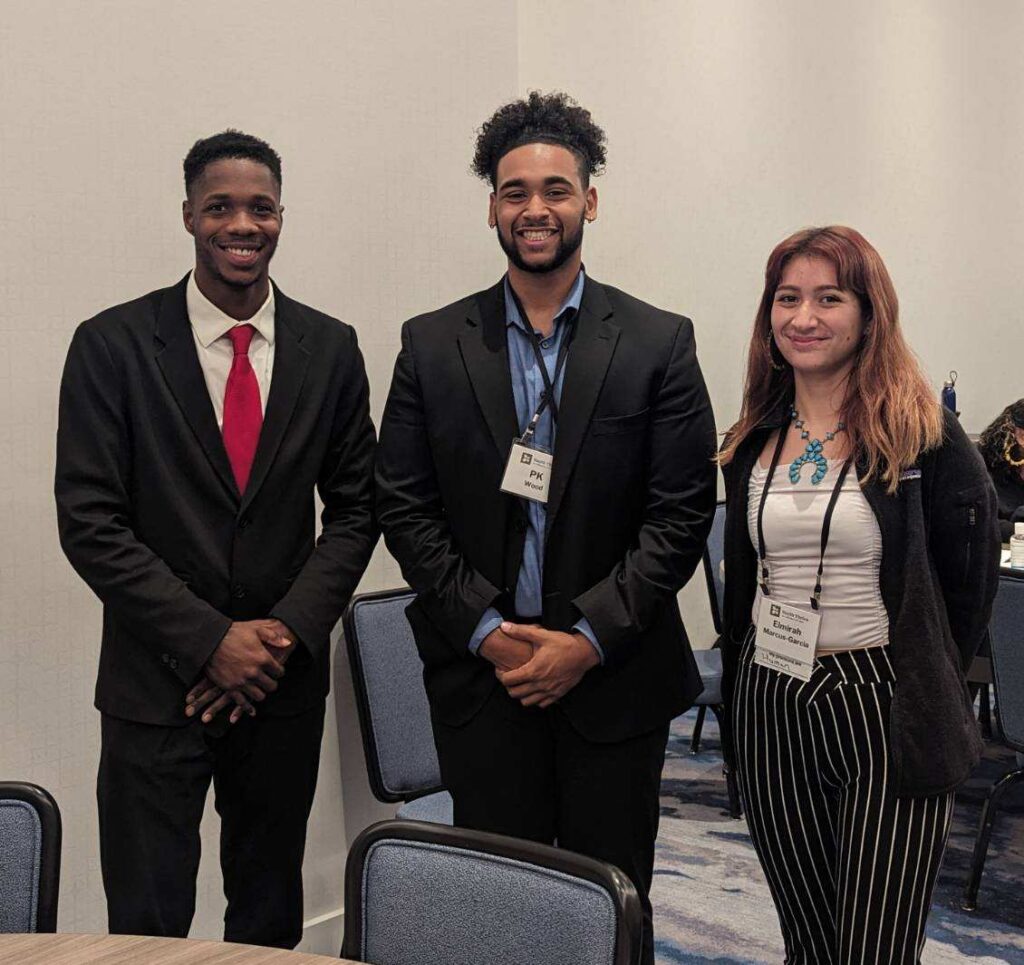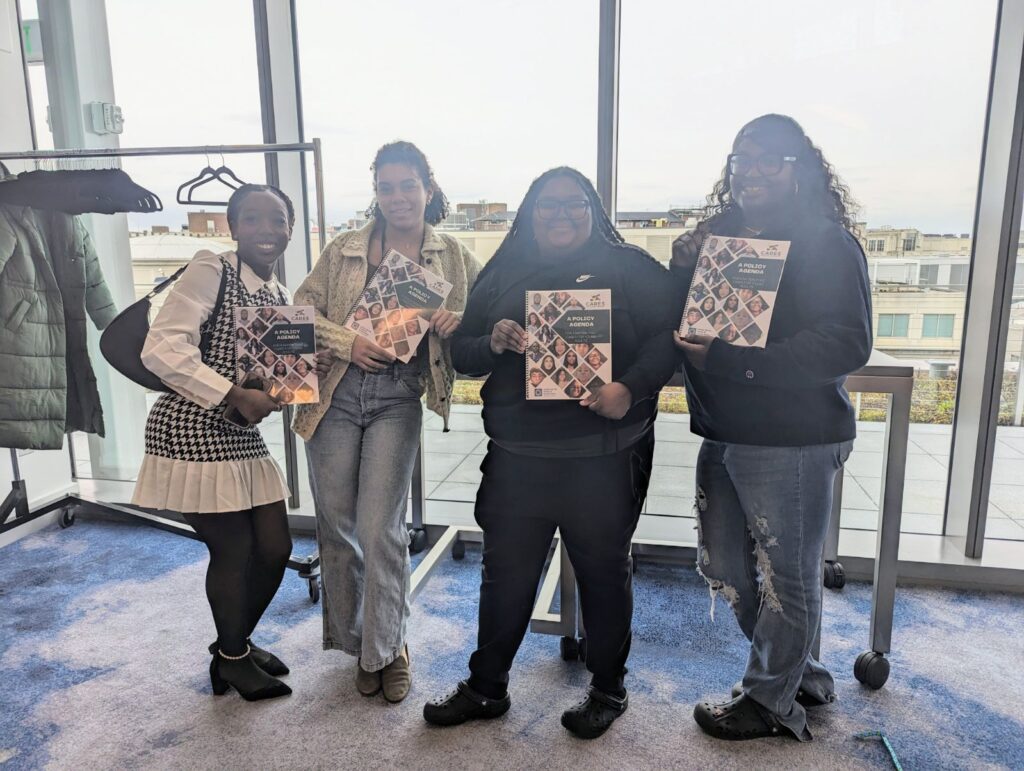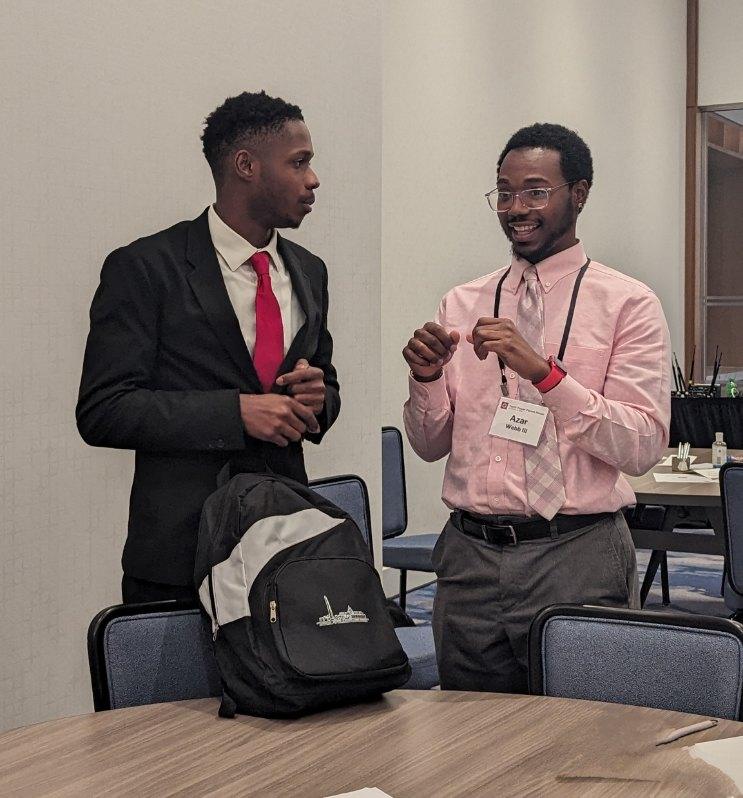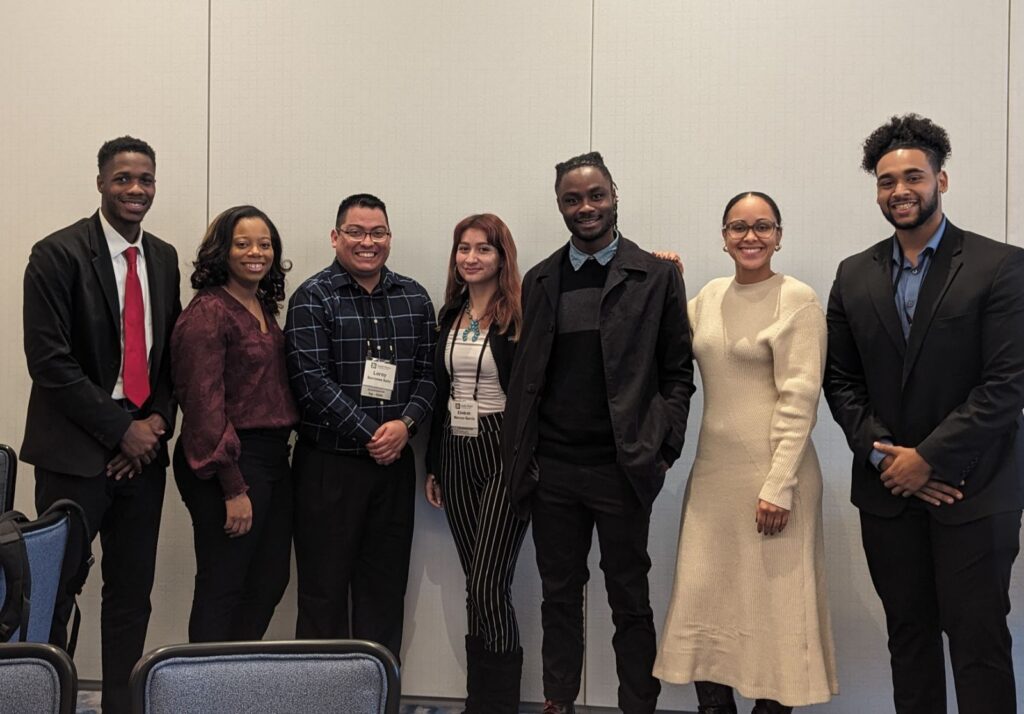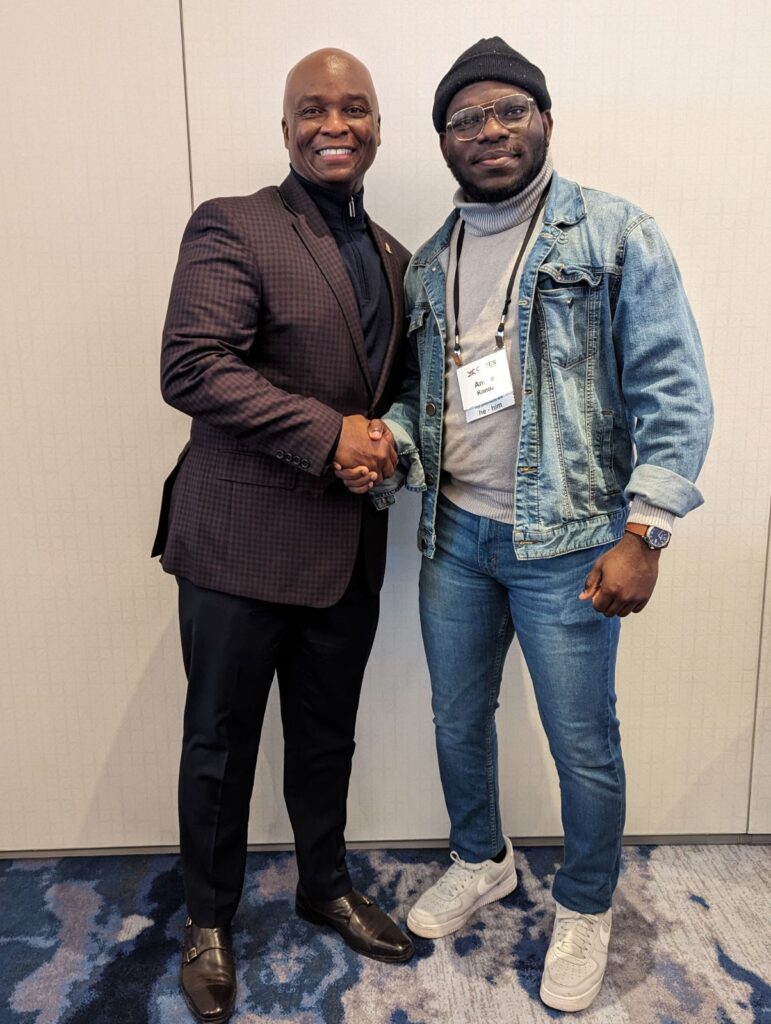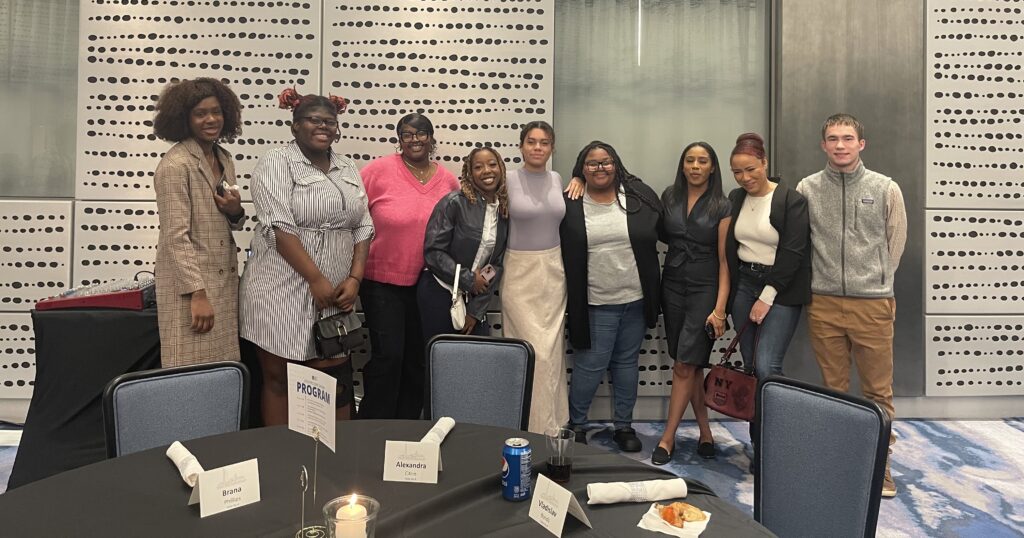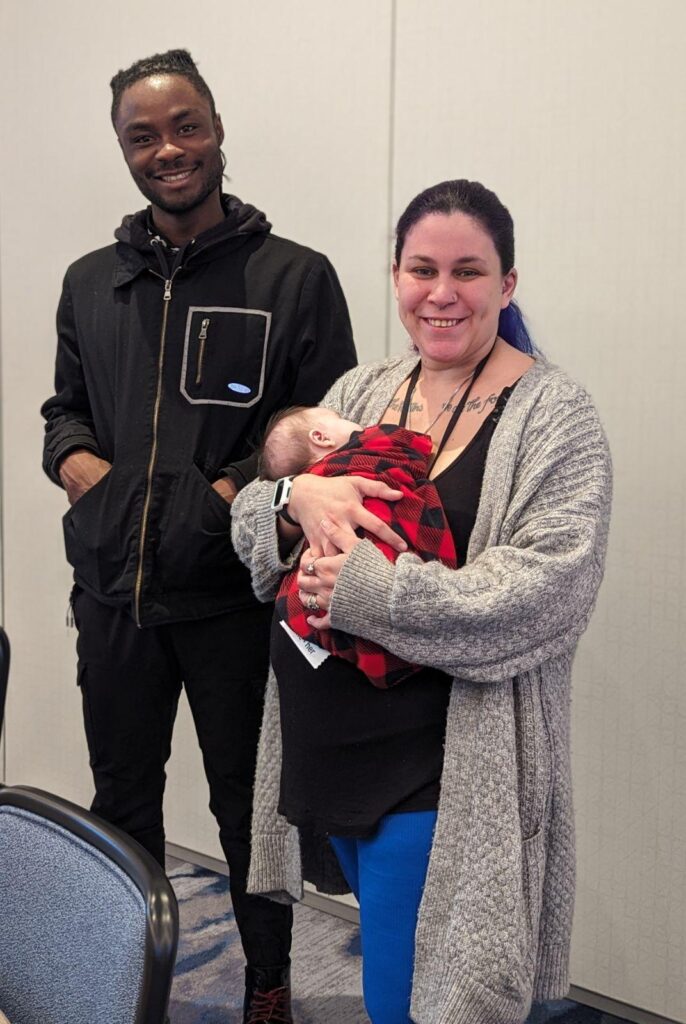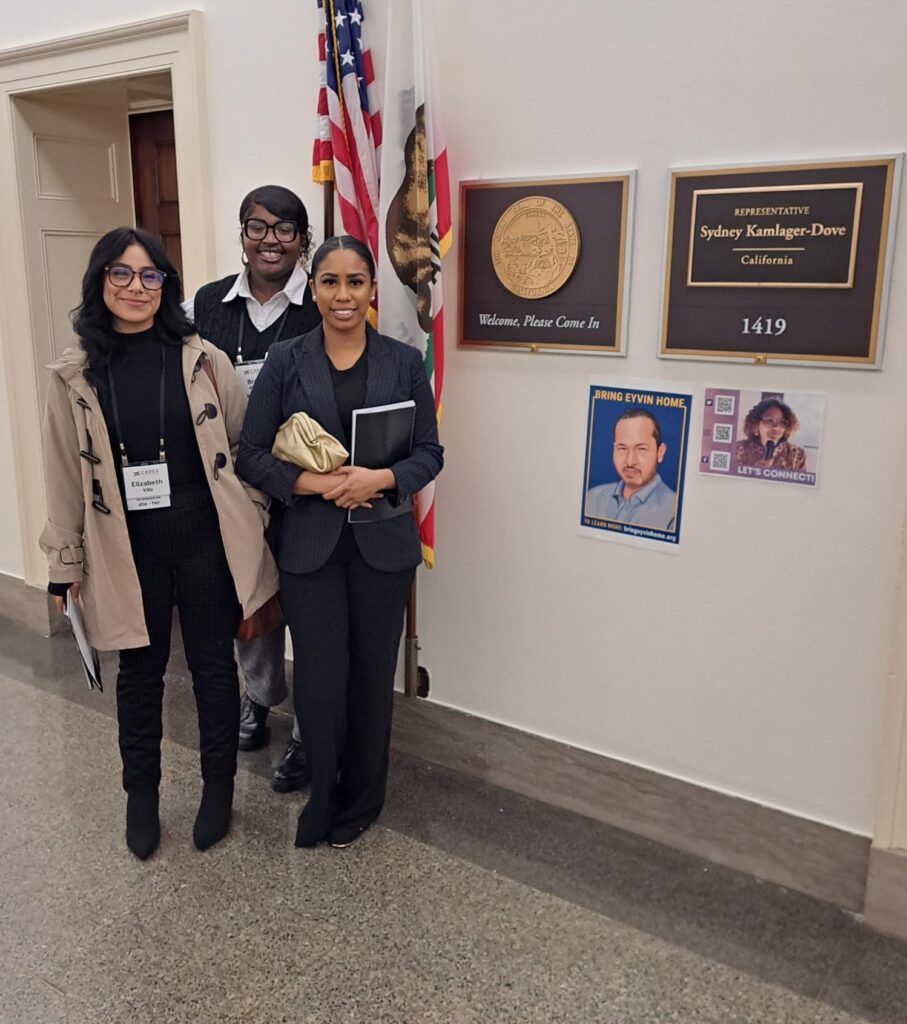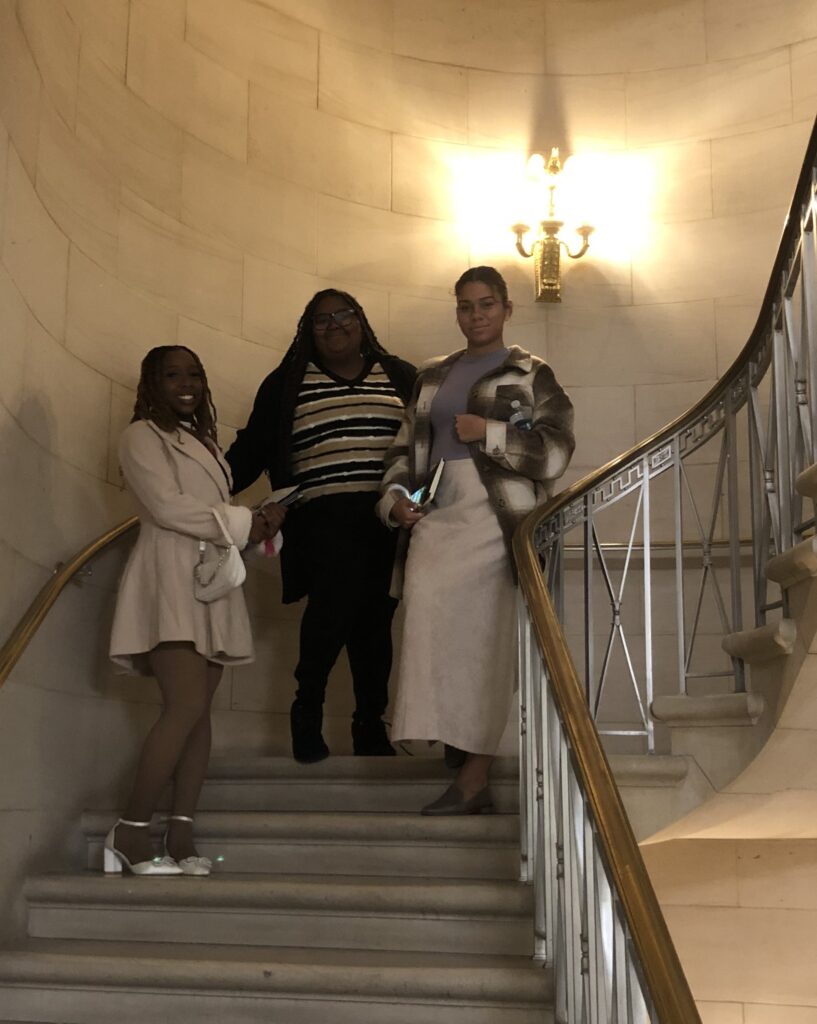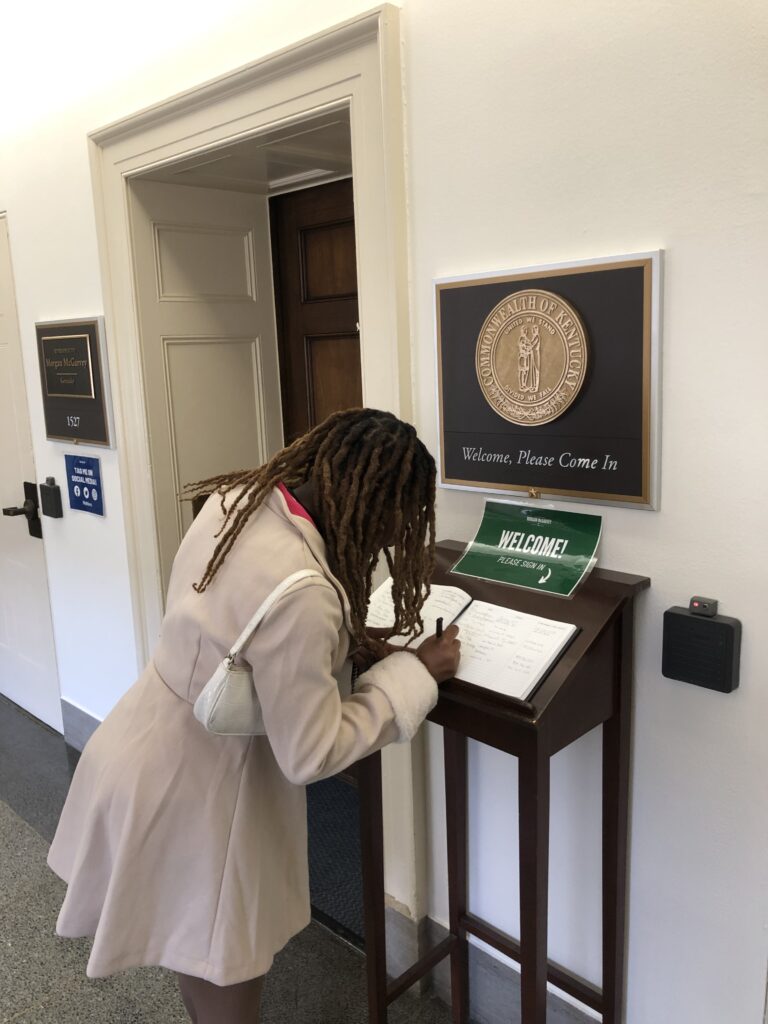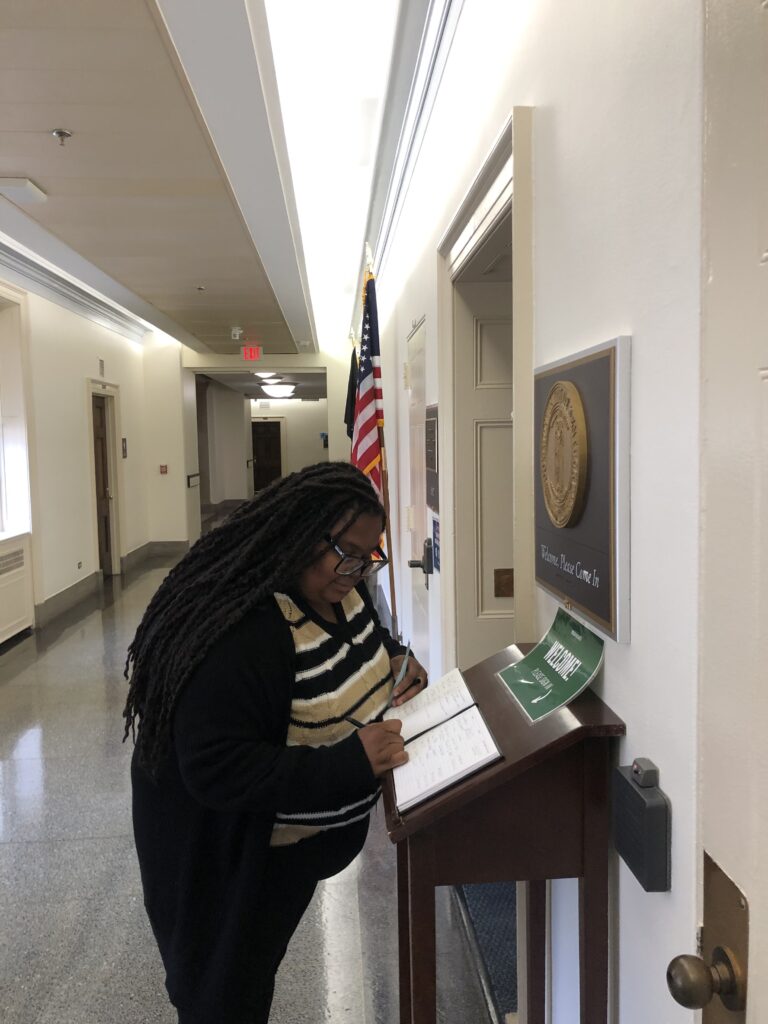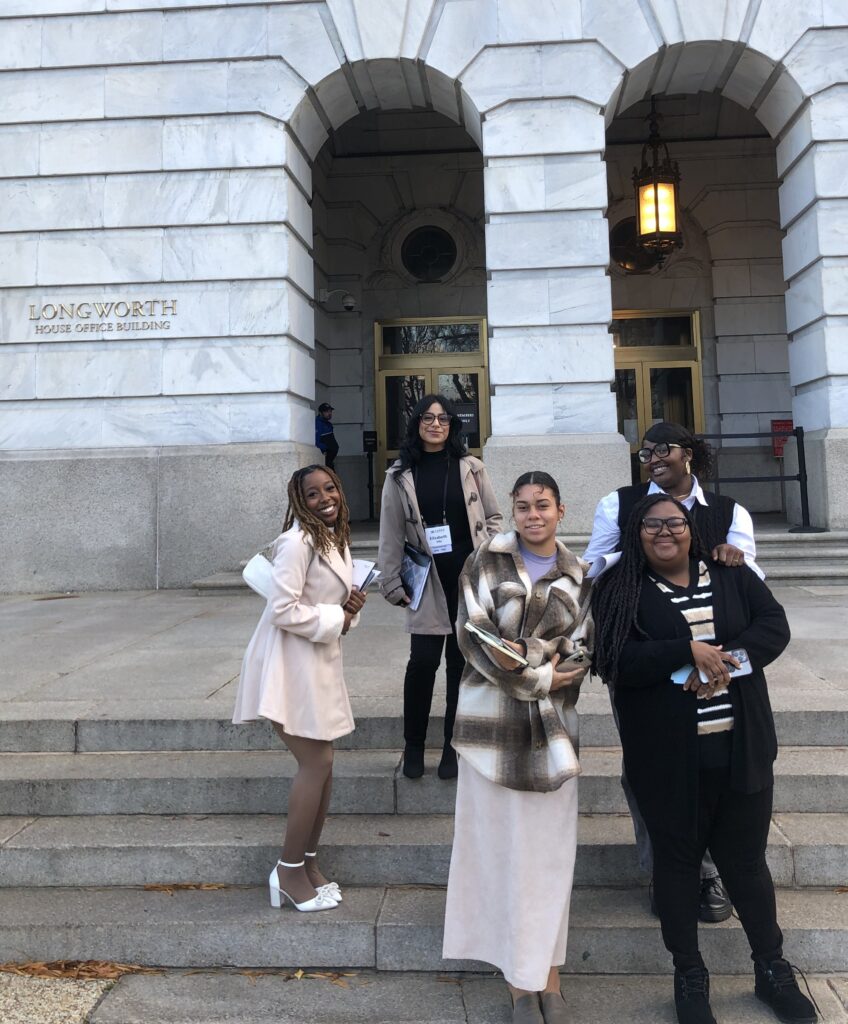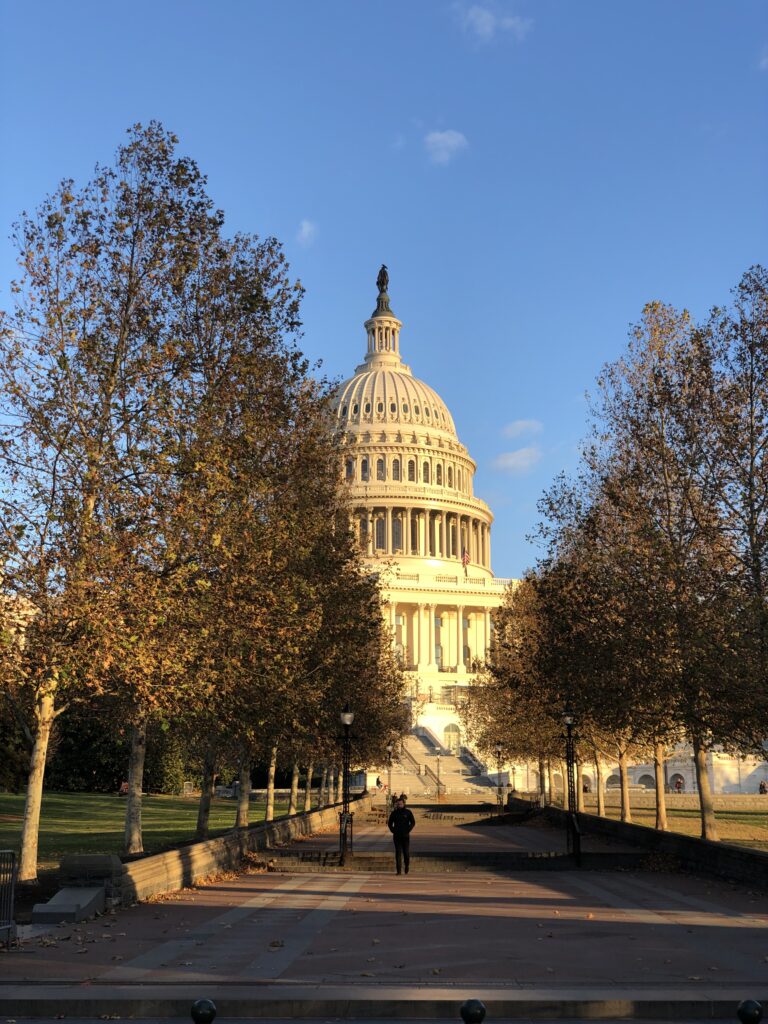Young people deserve to live in a society that promotes their well-being and engages them in designing policies that will contribute to and advance the conditions necessary to thrive. Last week, CSSP wrapped its first ever Constituent Convening, Moving Ideas into Action: Using Our Shared Power to Advance Justice, where we invited three of our constituent engagement initiatives (CARES; Youth Power, Parent Power; and Youth Thrive) to join us in the nation’s capital. Our goal with coming together in this way was three-fold: to create space for CSSP’s youth and parent-driven initiatives to be together, learn from one another, strengthen existing relationships, and forge new partnerships; to create the space needed for each initiative to share their valued voices, perspectives, and ideas on policy change; and to collectively build a shared vision and promote policy solutions that advance justice for Black, Indigenous, Latine, LGBTQ+, and immigrant youth and young parents.
As we deepen our work with constituents, and truly lean into a co-creation model, it is imperative for us to ensure young people have the skills needed to advocate for themselves while also getting access to those policymakers who can make meaningful change on their behalf. To that end, we were delighted to work directly with several federal policymakers throughout the convening while also giving our attendees many opportunities to deepen their understanding of opportunities and strategies to advance justice for youth and families, explore opportunities to advance policies that promote justice for youth and families, and engage with and learn from policymakers and advocates to support participants in advancing their own policy priorities.
Congresswoman Gwen Moore gave the keynote address on Day 1 and spoke at length about living a life of activism. She reminded us that “wherever you see the ‘problems’ in your life, that’s where your activism should start.” She also spoke at length about her belief that families belong together—and that policies should begin and end with that directive. Congresswoman Moore further noted how hard advocacy work can be—it is truly a 24/7 job but you can’t tire of advocating because those who are against you never take a day off. As a member of the House Ways and Means Committee and co-chair of the Congressional Caucus on Foster Youth, Congresswoman Moore is a champion for justice, young people, and families, working to ensure that all young people in care and aging-out have access to the supports and resources they need to thrive. We are grateful for her leadership in advancing justice and her words of inspiration as the constituents we partner with continue working to make real changes in the policies that most affect their lives.
Following her inspiring keynote, our attendees were treated to a series of panels focused on how to advance justice. Panelists on days 1 and 2 ranged from other young leaders, advocates in the field, and other policymakers, and the message across the board was that this work is difficult, but it is critical to advancing authentic and meaningful policy change for those who need it most. Because this work is best when done in collaboration with constituents, the first panel featured a representative from each of the initiatives in attendance who shared their own experiences with policymakers, co-creation, and advice to advocates and organizations about the importance of including constituent voices in all parts of the work. The second panel featured panelists currently working in Congress, who shared their unique expertise on the policymaking process. In addition, they spoke on the role of staff in executive and legislative branches in shaping policy and helped attendees deepen their own understanding of strategies to advance justice for youth and families. Finally, a panel of national advocates shared their priorities, the current state of play on key issues on the hill, and how they engage with constituents in their efforts to advance justice.
A big thank you to all of our panelists:
- Earl Clark, Youth Thrive
- Rricha deCant, Director of Legislative Affairs, Center for Law and Social Policy
- Danie Guzman, CARES
- Gabrielle Newell, Senior Equity Advisor Immediate Office of the Assistant Secretary, Department of Health and Human Services Administration of Children and Families
- TyAsia Nicholson, Youth Power, Parent Power
- Theron Pride, Managing Director of National Initiatives and Research, Center for Justice Innovation
- Juan Rangel, Federal Lobbyist, National Education Association
- Tashia Roberson-Wing, Senior Casework and Field Liaison for Congresswoman Shontel Brown, (OH-11)
- Michael Santos, Associate Director, U.S. Poverty Policy, RESULTS
-
Azar Webb, Youth Power, Parent Power
On the final day of the convening, CARES Ambassadors had the opportunity to speak with staff members of Congress on Capitol Hill, meeting with the offices of Senator Bob Casey (D-PA); Representative Sydney Kamlager-Dove (D-CA); and Representative Morgan McGarvey (D-KY) to discuss the policy recommendations they’ve been developing. The six-point CARES national policy agenda is focused on providing young people with a safe and stable set of supports that will allow them to thrive including access to: economic supports; meaningful employment; child care; housing; mental health and well-being supports; and meaningful connections to supportive adults. Representative Sydney Kamlager-Dove is a fierce advocate for families; as co-chair of the Congressional Caucus on Foster Youth, she works diligently to ensure that all young people in care and aging-out have access to the supports and resources they need to thrive. Her office staff met with three of our CARES Ambassadors, who discussed the importance of housing, child care, and mental health supports as well as connections to supportive adults. As a champion of the Young Adult Tax Credit, Congressman Morgan McGarvey knows that a guaranteed income and financial security is critical for future success. Ambassadors met with his staff to discuss economic success and employment, mental health, and housing supports. Senator Bob Casey is a vocal champion supporting youth in foster care, introducing several bills focused on mental health services for foster youth during his time in office. The Ambassadors who met with his office discussed their policy recommendations for mental health and well-being supports that benefit youth aging out of foster care.
There are a lot of exciting things on the horizon for CSSP, particularly as we continue to work in collaboration with constituents. True co-creation and collaboration with these young people, and families requires that we center them—their lived experiences, their needs, and, perhaps most importantly, what we owe them as partners in this work. While this convening is the first of many, we remain committed to finding more new and innovative ways to do this work and to reach policymakers with the power to truly effect change.
View a photo album from the Constituent Convening:
